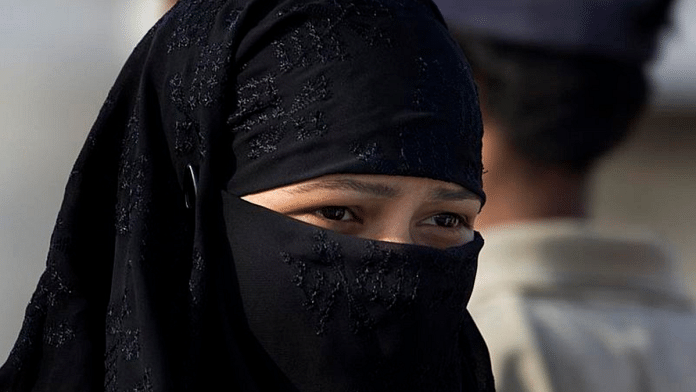New Delhi: The Supreme Court has decided to examine whether a divorced Muslim woman can ask for maintenance from her husband under Section 125 of the CrPC, in what could stir up debate over whether personal law has precedence over secular law.
On February 9, a bench led by Justice BV Nagarathna appointed senior counsel Gaurav Aggarwal as amicus curiae to assist it on the issue after a Muslim man questioned a Telangana High Court direction to pay Rs 10,000 interim maintenance to his former wife.
According to the appeal, a divorced Muslim woman cannot seek maintenance under Section 125 of the CrPC as the Muslim Women (Protection of Rights on Divorce) Act, 1986, will prevail over it.
The appeal added that the woman approached a family court where her maintenance petition would not be applicable since the first-class magistrate has jurisdiction to decide the “mahr” or dower and other subsistence allowance under the 1986 law.
During the 9 February hearing, the bench made oral remarks that the definition of a woman under Section 125 of the CrPC included one who was divorced. Justice Nagarathna also said prima facie, a petition by a Muslim woman would be maintainable. However, the bench said it would deliberate on the topic once Aggarwal made his submissions.
Also read: Nehru didn’t bring Muslim Personal Law reform. His commitment to secularism took a beating
SC upheld validity of 1986 law in 2001 Daniel Latifi judgment
Section 125 of the CrPC mandates a person having sufficient means to maintain his wife, children (legitimate or illegitimate), and father or mother in case they are unable to maintain themselves. The explanation section says a wife includes a woman divorced by or who has obtained a divorce from her husband and has not remarried. Many states have made region-specific amendments to the section to allow a ceiling on the maintenance amount the court can order.
The Muslim Women (Protection of Rights on Divorce) Act, 1986, is a religion-specific law that provides for a procedure for a Muslim woman to claim maintenance during divorce. It was introduced after the 1985 Shah Bano judgment, which allowed a Muslim woman to take maintenance from her husband under Section 125 of the CrPC.
The Supreme Court upheld the validity of the special law in the 2001 Daniel Latifi judgment.
According to the current appeal before the SC, the Telangana High Court failed to appreciate that the special Act provisions will prevail over the provisions of Section 125 CrPC, a general Act. It cited the non-obstante clause in sections 3 and 4 of the special Act.
Section 3 of the 1986 Act says a divorced Muslim woman is entitled to a reasonable and fair provision and maintenance by her former husband, made available to her during the ‘iddat’ or grieving period when she should not remarry. Also, she would get an amount equal to the ‘mahr’ agreed on at the time of her marriage or any time after that, and all properties given before, at the time, or after her marriage by her relatives or friends or husband or by his friends and relatives.
Section 4 of the 1986 Act deals with the grant of maintenance to the woman after the completion of the ‘iddat’ period. Under this provision, the woman can approach a first-class magistrate for maintenance in case she has not remarried and is not in a position to take care of herself financially.
The petitioner’s lawyer, senior advocate Wasim Qadri, told ThePrint that under Section 5 of the 1986 Act, his client and his former wife could have filed an affidavit before the magistrate to say they preferred the CrPC provisions, but they never submitted that.
“In the absence of this document, the court cannot entertain her request for maintenance under Section 125 of the CrPC as there is a bar in the special law,” he said.
Case raised several questions of facts and law: Telangana HC
The wife approached a family court in Hyderabad in March 2019, alleging her husband gave her triple talaq and claimed a Rs 50,000 monthly maintenance under Section 125 of CrPC.
The husband cited the special Act to contest her claim. He also said he had already paid his former wife Rs 15,000 as maintenance during the ‘iddat’ period.
Both traded allegations of cruelty.
In June 2023, a Hyderabad family court ordered Rs 20,000 interim maintenance for the wife. This, the petitioner said in SC, was done “without appreciating that the petition is not maintainable” given the special law.
Upon an appeal, the Telangana HC in December 2023, reduced the interim maintenance to Rs 10,000. It did not delve into the questions of law in the appeal but observed the case raised “several questions of facts and law”. It also directed the family court to decide the issues arising in the case within six months.
(Edited by Madhurita Goswami)
Also read: UCC could be around the corner, but divorce still comes in many colours in India



